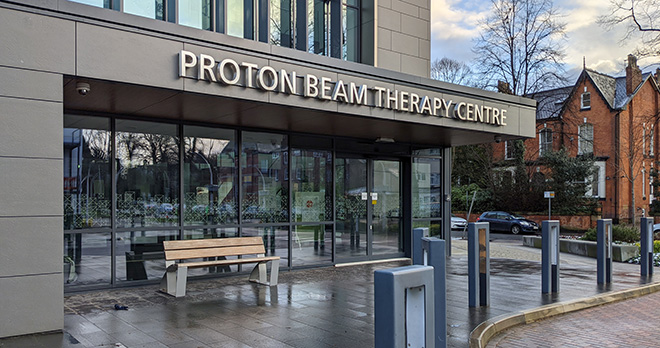Current and future treatment options for mesothelioma, including a review of the ATOMIC-Meso Trial

Mesothelioma treatments
Mesothelioma is a cancer that usually develops in the lining of the lung. The UK has the highest prevalence of mesothelioma cases in the world, with approximately 2,700 people diagnosed with the cancer each year. Mesothelioma is almost always linked to asbestos exposure.
As specialist asbestos disease lawyers, we are all too familiar with the heartbreak, pain and suffering mesothelioma causes for patients and their families. There is no known cure for mesothelioma, but the treatments to improve quality of life and extend life have improved dramatically over the last five to ten years and are continuing to develop at a pace.
Current treatment options and trials
-
Chemotherapy
Chemotherapy uses anti-cancer (cytotoxic) drugs to destroy cancer cells. The drugs circulate throughout the body in the bloodstream and target the mesothelioma cells.
Chemotherapy is available on the NHS.
-
Immunotherapy
In July 2022, NICE approved dual agent immunotherapy as a first line of treatment on the NHS.
Immunotherapy uses the immune system to recognise and kill cancer cells. It is offered to most patients with mesothelioma, dependent on previous treatments that the patient has undergone.
Immunotherapy was called a breakthrough treatment when it was first trialled, and deemed to be more effective than chemotherapy. The clinical trials showed 8% more people surviving with mesothelioma after three years, with a further 13% showing their cancer had stopped progressing in the same time period compared to those treated with just chemotherapy.
-
MARS-2 trial – Pleurectomy decortication surgery
The Mesothelioma and Radical Surgery Trial 2 (MARS-2) was a trial focussed on the effectiveness of surgery.
The study compared the survival of two groups of pleural mesothelioma patients. One group had chemotherapy with the pleurectomy decortication surgery, and the other group had just chemotherapy with no surgery.
Pleurectomy decortication is a two-phase operation. The pleurectomy removes the pleura (the lining around the lung) and the decortication removes the tumorous fibrous tissue from the surface of the lung. The surgery is designed to remove the cancer, whilst preserving the lung itself.
The results from the MARS-2 trial were mixed, with the overall conclusion being that there was no significant difference in survival time between those who had surgery and chemotherapy, and those who just had chemotherapy.
In reality, surgery for mesothelioma is often complicated and risky, but for some it has been successful in stopping disease progression and extending their life expectancy.
-
Proton beam therapy
Proton beam therapy is a type of radiotherapy that uses a beam of high energy protons to target cancer cells. The proton beams are small and therefore this type of treatment allows a dose of high energy protons to precisely target the cancer cells, reducing the damage done to surrounding healthy tissue.
Proton beam therapy is available on the NHS for some cancers, but it is not currently available for mesothelioma. However, patients have successfully sought the treatment privately.
The ATOMIC-Meso Trial
Due to the aggressive nature of mesothelioma, treatment options are limited.
However, on 15 February 2024, headlines broke about a new “breakthrough treatment” for patients diagnosed with mesothelioma, following results released from the ATOMIC-Meso trial.
This trial was run by Professor Szlosarek who some 20 years ago discovered that mesothelioma cells lack a protein called ASS1, which means mesothelioma cells are not able to make an amino acid called arginine. Mesothelioma cells take arginine from the rest of the body and use it to grow.
Over the past two decades, Professor Szlosarek has developed a drug that depletes the arginine levels in the bloodstream. Reducing the levels of arginine in the bloodstream cuts off the supply of arginine to the mesothelioma cells, which cannot develop their own, and in turn thwarts the growth of these cancerous cells.
This drug is known as ADI-PEG20, or pegargiminase, and the impact of the drug was tested in the ATOMIC-Meso trial across five countries from 2017 to 2021, with data analysis performed from March 2018 to June 2023.
This is what happened in the trial:
249 patients with pleural mesothelioma, averaging 70 years of age, took part in the trial. All 249 patients were given a combination of pemetrexed chemotherapy and either cisplatin or carboplatin chemotherapy every three weeks for up to six cycles. 125 of these patients also received additional weekly doses of pegargiminase, with the other 124 patients receiving additional weekly doses of a placebo drug.
The findings from the trial concluded that patients who received the new drug, combined with chemotherapy, had a median overall survival of 9.3 months. This was compared to those who received just chemotherapy and the placebo drug who had a median overall survival of 7.7 months. In addition, four times the number of patients treated with pegargiminase and chemotherapy survived to 36 months compared to those treated with the placebo drug and chemotherapy.
Although to some a median survival of an additional 1.6 months may seem low and inconsequential, it must be remembered that this is a significant amount of time for someone diagnosed with this incurable disease. It is also a significant breakthrough for mesothelioma treatment, with pegargiminase being the first drug of its kind to be successfully combined with chemotherapy in over 20 years.
One patient involved in the trial spoke to the Guardian and Cancer Research and said that he had previously been given a life expectancy of four months. Having received the new drug in the trial, he is still alive now, five years after his diagnosis.
In addition, the ATOMIC-Meso trial reports that the drug has no new known side effects and that side effects were similar between patients given pegargiminase and chemotherapy and patients given just chemotherapy and the placebo drug. In fact, the commonly reported side effects for those receiving pegargiminase with the chemotherapy were nausea, fatigue and constipation compared to those receiving just the chemotherapy who also reported nausea and fatigue, but also anorexia. This suggest that patients given pegargiminase with chemotherapy lost less weight than patients who received just chemotherapy.
Whilst this trial is certainly positive, it is pertinent to note that this trial was focussed on non-epithelioid pleural mesotheliomas and it is not yet known if this drug would be offered to patients diagnosed with epithelioid mesothelioma, or with non-pleural mesothelioma.
Simon Bolton, a mesothelioma clinical nurse specialist, spoke to us and said,
“It’s great to see mesothelioma trials with positive results as it gives our oncologists more ammunition with which to fight this disease. I’m interested to learn where the drug will fit into treatment pathways now we have first line access to immunotherapy. I hope the encouraging trial data from ATOMIC leads to the drug being made available soon to all via the NHS”.
The future
It is hoped this drug will be available as a standard treatment option for patients diagnosed with mesothelioma in the near future. The discovery of this drug is also beneficial to patients diagnosed with other cancers with poor survival outcomes, where those cancer cells are also dependent on arginine.
Above all, this drug provides a viable successful further treatment option, and it gives hope to people diagnosed with mesothelioma and their loved ones.
There is always uncertainty about when and whether new drugs like pegargiminase will be approved by NICE for use within the NHS. In the meantime, those diagnosed with mesothelioma should be encouraged to seek legal advice as it is often possible to access bespoke medical treatment (including drugs like pegargiminase) as part of a claim for compensation.
Contact our mesothelioma and asbestos claims specialists today.
Call now



